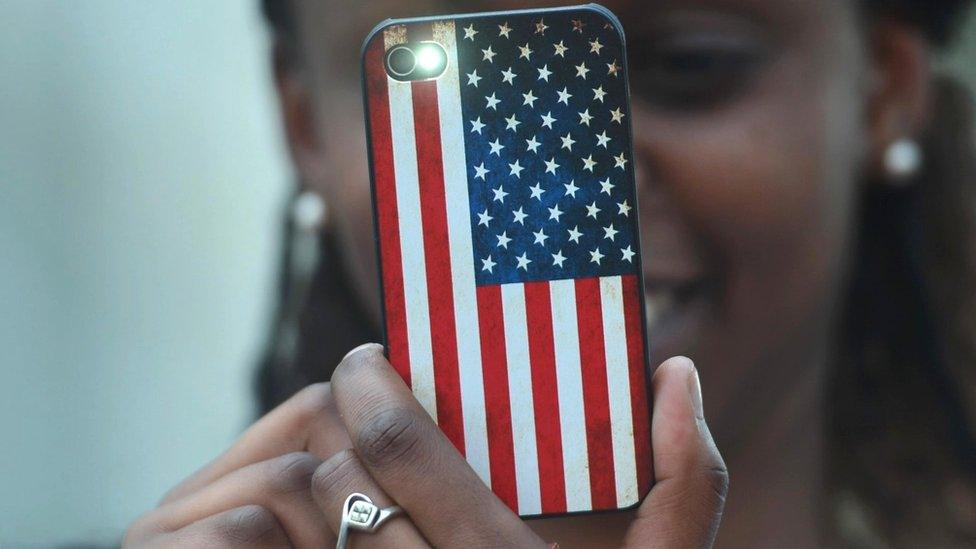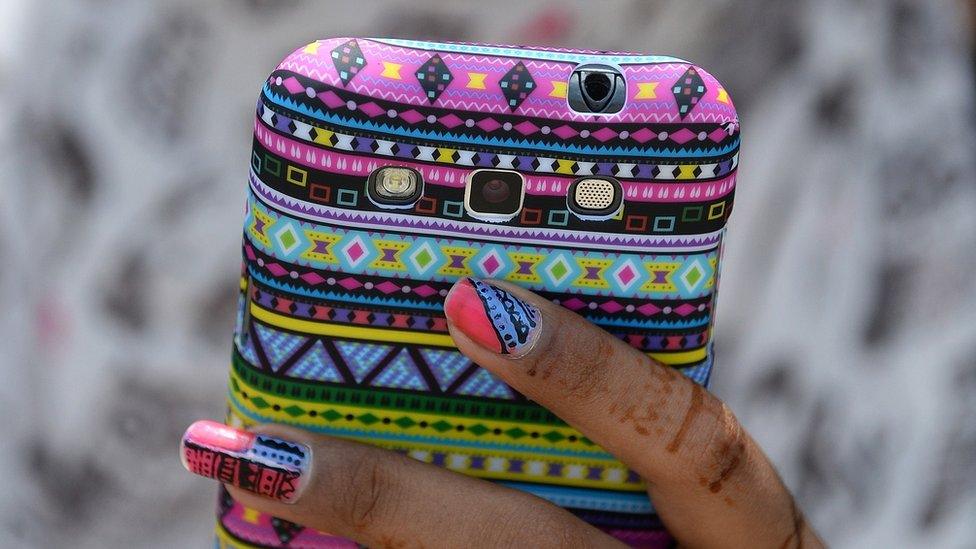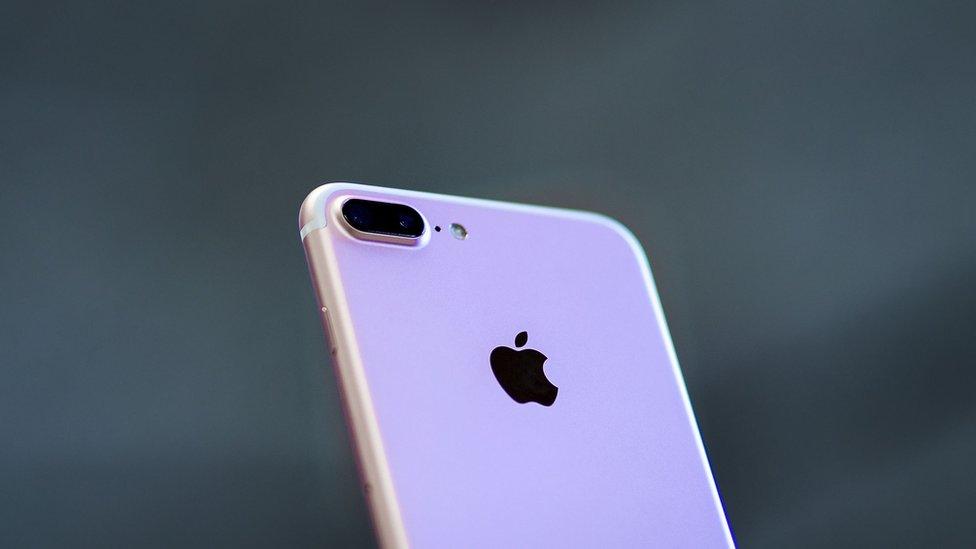Should you take your phone to the United States?
- Published
- comments

"The next time you plan to cross a border, leave your phone at home."
That is the rather startling advice in a blogpost, external that is being widely shared right now.
Its author, Quincy Larson, is a software engineer, who has previously written about the importance of protecting personal data. He now fears that data could be at risk every time you cross a border.
His concerns were sparked by the story of Sidd Bikkannavar, an American-born Nasa engineer, who flew home from a trip to Chile last month. On arrival in Houston, he was detained by the border police and, by his own account, external, put under great pressure to hand over the passcode to his smartphone, despite the fact that the device had been issued to him by Nasa.
Eventually, Bikkannavar did hand over both the phone and the passcode. It was taken away for 30 minutes and then returned, and he was free to go.
Larson sees this as a very dangerous precedent: "What we're seeing now is that anyone can be grabbed on their way through customs and forced to hand over the full contents of their digital life."
We also know that the new homeland security secretary, John Kelly, has talked of requiring visa applicants to hand over passwords to their social media accounts - though whether that could apply at the border too is not clear.

How much private data is on your smartphone?
And on Thursday, a new Republican congressman took to Twitter to announce proudly that he had introduced his first bill - to require the review of visa applicants' social media.
Larson predicts that a policy where travellers are asked to download the contents of their phones will soon become commonplace, not just in the United States but around the world.
Hence his advice to leave your mobile phone and laptop at home and rent devices when you get to your destination.
Which seems a little extreme. I can't imagine being separated from my smartphone on a flight - and I'm sure many others feel the same. So I decided to seek some advice from the UK Foreign Office and the US embassy in London.
Was there a danger that I would be forced by border officials to unlock my phone or hand over my social media passwords?
The Foreign Office told me their travel advice did not cover this subject because they had not received any calls about it. But they did suggest that if I happened to be trapped in immigration at JFK airport with a border agent demanding my passcode, I could call the British embassy and arrange a lawyer.
As for the American embassy, well I called before lunchtime on Thursday and got a perfectly pleasant response. They would need to speak to Washington and would get back to me later about the matter of my smartphone and my Facebook and Twitter accounts.
As I write, it's Friday morning and I've heard nothing. Perhaps Washington has other matters on its mind. So perhaps I'd better take what I believe is known as a "burner" phone the next time I fly across the Atlantic.
Update:
Forty-eight hours after my first enquiry, I have now received a response to my questions from the US embassy in London. Here it is:
"All international travellers arriving to the US are subject to US Customs & Border Protection inspection. This inspection may include electronic devices such as computers, disks, drives, tapes, mobile phones and other communication devices, cameras, music and other media players and any other electronic or digital devices. Keeping America safe and enforcing our nation's laws in an increasingly digital world depends on our ability to lawfully examine all materials entering the US.
"US Customs & Border Protection realises the importance of international travel to the US economy and we strive to process arriving travellers as efficiently and securely as possible while ensuring compliance with laws and regulations governing the international arrival process."
- Published13 December 2016
